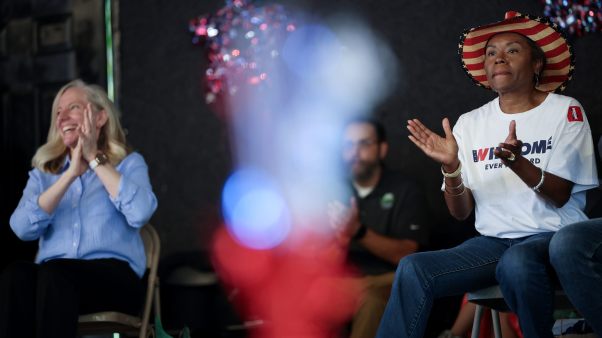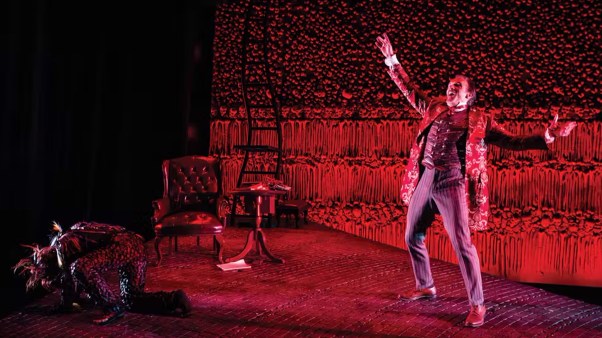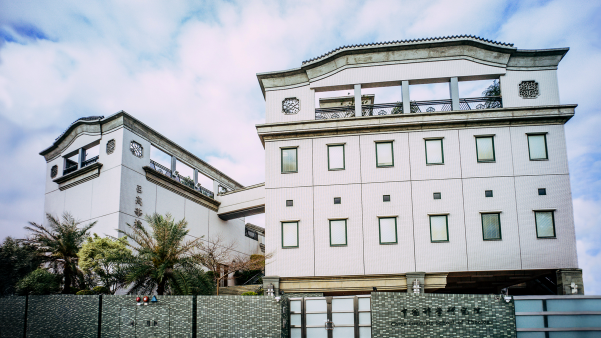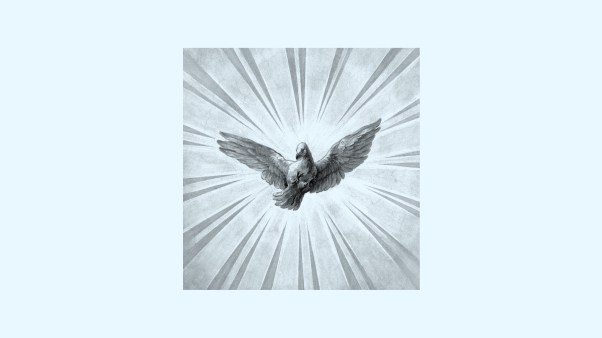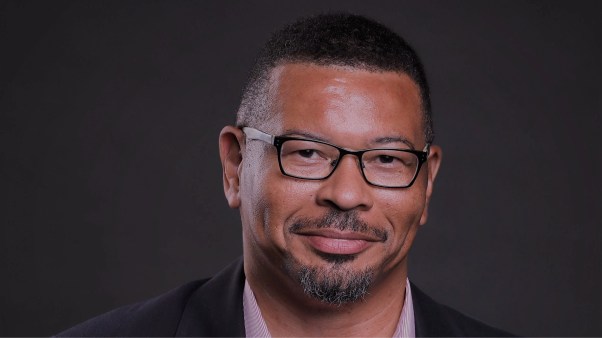I still don't know how to die.
You'd think having done it once I would have some expertise on the subject. Most people punch a one-way ticket to the Great Beyond, but mine was a return ticket.
The surgery was scheduled. Death was not. It came abruptly and unannounced. There was no shuffling in line, security checkpoints, or waiting at the gate. It came without warning. I was unconscious when I stopped breathing. I had gone under the knife to remove nose cartilage occluding my airway. You don't typically write a will before undergoing a routine nasal surgery, but I went into cardiac arrest from a reaction to the anesthetic. For 20 minutes, I was gone. The medical team fought to bring me back—and finally did. Thank God for the resuscitating powers of defibrillation, atropine, and ambu bags.
My experience on "the other side" didn't reflect much of what I've read on the subject. If I'd paid for my ticket, I would have felt a bit ripped off. No tunnels of light. No angel wings flapping. No grandparents telling me to relay messages to loved ones. Who knows, maybe I died wrong.
All I know is that it impacted me profoundly. In the opening chapter of the C.S. Lewis novel Perelandra, the narrator observes a change in the lead character Ransom after he's returned to England from Mars. "A man who has been in another world does not come back unchanged. One can't put the difference into words."
This has certainly been true of my experience. To this day, I can't talk about it with tears forming in my eyes. At the time of my experience, I was living in Wales doing missions work. The word that comes closest to describing what happened is what the Welsh call the hiraeth. The ancient Celtic word has no English equivalent. It usually refers to someone longing for their homeland. And yet even that doesn't quite capture the word's meaning. It's something deeper. Like many Welsh words, hiraeth is better felt than explained. The hiraeth is the tug in the chest from an invisible cord reminding the traveler that he's sojourning on a distant and foreign shore.
This is the word I uttered during the neurological check after the crash team revived me. I'll never forget the fascination and awe I felt confessing, "I'll have the hiraeth for heaven for the rest of my life." I knew it then. I was changed forever by setting foot inside of forever, if only for 20 minutes.
Eternity in my heart
When a patient regains consciousness or awakes from general anesthetic, they don't just snap back to full consciousness. Mental orientation is regained in stages. The brain gets its bearings slowly, piecing together what just happened after a mental reboot. Every time a person is knocked unconscious, the brain resets and goes through system processes like a computer. Orientation typically occurs in the following order:
Orientation to self (x1)
Orientation to place (x2)
Orientation to date (x3)
Orientation to situation (x4)
When I was an RN, we charted that the patient was oriented x3 if they were fully aware, while paramedics add the fourth designation because it's associated with temporary memory loss right after trauma. Because self is generally first in the reorientation process, we first ask, "Can you tell me your name?" Then, "Do you know where you are?" But I seemed to skip these steps. Before I could open my eyes, I was oriented x4. In fact, I was still oriented to heaven. It felt like some of it had come back with me. The physical trauma of dying lasted weeks, but eternity's afterburn lingered much longer.
Entry denied
I wonder how many patients that are revived from dying wake up disappointed. That was certainly the case with me. I just didn't want to be back. It felt like I'd just endured a grueling international flight, been taxied to the gate, allowed to disembark, and after stretching my legs a bit, been forced to board the aircraft again to be flown home. I remember screaming inside my head, wishing my mouth would work. I would have shouted for them not to resuscitate. After 20 minutes of working on my body, they restored a pulse. They'd felt successful. I felt they'd failed me.
I struggled with whether to write about my experience. I feared that sharing it would somehow cheapen it. My grandfather served as a paratrooper in the 101st Airborne during WWII. Over the years he declined to speak about his war experiences. Perhaps he feared that no one would understand the complexities of a world far removed from this one by the circumstances of war. Perhaps he didn't want people dissecting his psyche or analyzing his trauma when the faces of fallen comrades are still so vivid.
After 20 minutes of working on my body, they restored a pulse. They'd felt successful. I felt they'd failed me.
When somebody shares a near death experience, others rush to turn your story into proof for or against the existence of God and heaven. It's like recounting your war experiences as a veteran, reliving your buddies being caught on barbed wire, ripped open by bullets, only to have somebody trample what you've said by twisting it into an argument on the ethics of war. Perhaps, like a war veteran, I feel that you had to be there to truly understand.
My biggest fear, however, is that others will misunderstand an experience so personally profound and transformative. Some want me to pen a book on an already saturated subject so I can cash in on the experience. Others declare that what I experienced is theologically impossible, while skeptics speculate that it was the re-firing of my neurons inducing religiously themed hallucinations.
I'm a rational person. I'm a former psych nurse. I've explored all of the angles. But I've come to grips with the fact that I may never fully understand what happened to me. Paul shared his own experience without possessing certainty of what had actually transpired: "whether in the body or out, I don't know" (2 Cor. 12:3). If Paul was uncertain about his experience, then you'll have to forgive a little fogginess about my own.
Back on earth
Far more significant than what happened when I died was what happened when I came back. My eyes fluttered open, but I didn't need them to regain my orientation. I scanned the nurse's face, then the room, and the crash cart. I didn't need anyone to tell me what had happened. My mouth wouldn't work yet. I couldn't move anything but my eyes. Nurses bombarded me with usual questions, but when my jawbone reluctantly slipped back into submission, my first words were of exclamatory praise: "I've just seen the King of Heaven!"
Nurse: "Oh, were you dreaming then?"
Me: "No. I was there."
The Nurse glanced nervously at the others in the room.
Me: "I'll have the hiraeth for heaven for the rest of my life."
I knew he was doing the neurological check, and went along, but he asked me if I spoke Welsh. I remarked that I'd taken classes but was a poor language student. Having an American accent always sparked conversation in Wales, and he asked me what a nice American boy was doing in a Welsh town like this. I told him that I was a missionary church planter and without hesitation, proceeded to tell him about the love of God.
Something was radiating from me. The difficulty was in trying to explain what had happened.
I didn't do it like a wacky person. The cold call evangelism that I witness usually makes me cringe. Here, sharing the gospel had never been so easy, so natural, so unforced. It flowed out of me, and it had a powerful effect … because I was affected.
And it was infectious.
They wheeled me up to the recovery unit, transferred me from gurney to bed, showed me the pain control button, and left. I lay there in my bed for two hours like a shell-shocked man and wept.
I wept for the loss of what I'd felt. I wept for the loss of the beauty. Wordsworth reflected on the beauty of God reflected in the natural world remarking that it brought "thoughts that do often lie too deep for tears." But what of the supernatural world? More than anything I wept for the loss of what Rich Mullins prayed for, "When I weep let it be as a man who is longing for his home." And although I wept for my heavenly home, it felt as if I'd been allowed to bring back a few souvenirs, and those souvenirs were worth the journey.
That night a young man recovering from eye surgery in the next bed struck up a conversation. I recounted to him what had happened and we talked until 2 a.m. until I was too exhausted to stay awake and tell him about God anymore. Then he reached across the space between our beds, tugged on my arm, and pleaded with me to stay awake and tell him more about the gospel. I'd only read about this kind of response in the pages of Scripture.
Something was radiating from me. The difficulty was in trying to explain what had happened. Up until that point, I hadn't tried to explain it to a Christian. When my wife visited the unit the next morning with a box of donuts, I stared at the box as I tried to tell her about what I'd experienced. Each false start was interrupted by tears.
I couldn't recount the experience without breaking down. It took ages for me to look into her face and tell her about where I'd been without feeling I was betraying it. My feelings had no frame of reference and I struggled to communicate. I felt like the man healed of blindness who described men as "trees walking." So I grabbed the book of Revelation as if it were an English/Heaven translation handbook. Suddenly the ambiguous passages in Revelation that daunted me before were helping me make sense of what had happened. Where the commentators had struggled with obscurity, I now experienced clarity.
Souvenirs
People always want to know what I saw. It wasn't like that. I wasn't allowed to keep my visual memories anyways. I was allowed to keep my orientation though. Where I was; what I felt; what I was doing. Over the next six months, long after the drugs wore off and the pain left my body, the glory of my experience began to dim. Even Moses experienced the slow fade. Still, I have souvenirs from my journey. Let me share a few with you.
1. Sensitivity The two weeks following my experience are hazy. I slept nearly two weeks straight, barely emerging from my room, waking only a few short hours a day. My body was wrecked. When the cells in your tissue are deprived of oxygen for 20 minutes, you feel like a train ran over you. My body was healing itself when I slept, but whenever I was awake, I was in his presence. During those times I was in the secret place of The Most High, flooded with peace, and intimacy with God.
I became aware that there is only One whom I want to impress. It is him before whom I will stand one day … again. What a freeing realization!
I had a voracious appetite for spiritual things and wanted to read. I felt drawn to A.W. Tozer's The Pursuit of God. Reading, however, was like navigating an obstacle course. I couldn't read any book of spiritual depth without stopping to worship, weep, and pray after only a few paragraphs. I felt like David marching the Ark of the Covenant through the gates of Jerusalem, marching a few steps, only to stop and offer sacrifice.
I learned that Tozer had practically written the entire manuscript of his spiritual classic on a train after it had been delayed overnight. Tozer confessed feeling as if the content had been deposited into his mind faster than he could write. When they picked him up on the platform the next morning, he remarked that he didn't mind being held overnight because he hadn't been alone on his journey. Like Tozer, I had a heightened sensitivity to God's presence, and realized, like Jacob, that God had been "in this place and I knew it not."
2. Worship Travel agents must be frustrated trying to sell destinations to places they've never visited. How do you describe the Grand Canyon to somebody who's never been without making it sound like merely a big hole in the desert? Words, ideas, and imaginings fail to do justice to the reality one encounters when they arrive.
I'd always heard that I'd be in awe of God when I got there, but nobody told me what I really felt. More than awe, more than wonder, more than amazement, I felt pride in God. We were proud of Jesus; not just in awe of him. Suddenly the worship passages in Revelation began to unlock. I still feel it.
3. Assurance I might as well have been Superman, because after my experience, I had a bullet proof vest where condemnation was concerned. The enemy couldn't touch me. I saw his accusations for what they were and laughed. I told my wife, "Honey, it's all crap. All of it. He's taken care of everything. Condemnation is an illusion."
I was naked before God, but I was covered. This too faded … but I've never forgotten. Like you, I need the gospel of the grace of God, the preciousness of the blood, and the centrality of the cross to make it through every day now. But I know that one day, we will no longer limp, but run.
4. Healing Before June 5, 2008, Humphrey Bogart could have narrated the tragedy of my pastoral experience like a Sam Spade detective film. There were the days that certain churches came into my life, the times my tenure with them ended and they broke my heart. I'd already quit ministry, planted a church in a Starbucks, had my faith restored in ministry after being on the front lines, but there were a lot of busted up pieces still rattling around in my ribcage for years afterwards. My pastoral heart had been broken so many times that I'd learned to live and work hurt. And it cast a shadow over my life. Somehow, by being in his presence for 20 minutes, the brokenness was healed by him who casts no shadow. That impressed me, but it impressed my wife even more. She noticed the change. She knew something supernatural had happened in my heart.
Beyond the veil
I'm beyond the time where I should be wearing a veil. The glory has faded, and I'm simply myself, minus the luminous suntan. Yet the experience has left some indelible marks.
In some ways there's greater peace, mixed with an increased angst. The angst has to do with mission. The peace has to do with the mission being his. Paul's "One thing I do" was to take hold of that for which God had taken hold of him. He wanted to discover his mission; his purpose. I now have a similar sense of urgency. My experience made me less patient with the interruptions, more focused on the goal. When I read Paul, I get a sense that there's an invisible countdown ticking in the recesses of his mind. Like Paul, I am aware that I am living on borrowed time. I offend people more. I waste less time.
At the same time, my ambitions are dead. I am driven less by ego, more by impact. I became aware that there is only One whom I want to impress. It is him before whom I will stand one day … again. What a freeing realization! Now everything I do is for him.
Peyton Jones is the founder of New Breed Church Planting and author of Church Zero (David C. Cook, 2013).
Copyright © 2014 by the author or Christianity Today/Leadership Journal. Click here for reprint information on Leadership Journal.



